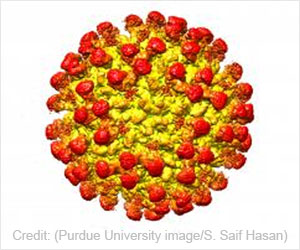President and CEO of the South African Medical Research Council Professor Glenda Gray said, “What we have seen in the in vitro work is that the J&J vaccine works better against the Delta variant and gets better over time where both the Delta and Beta variants are concerned”.
Right up to eight months we may say that we have durable immune responses as measured in people who we are following up over time,” Gray said.
She further added, “Quite unequivocally, the single shot of J&J vaccine works against both the Delta and the Beta variants of concern at eight months. So, this is just to reassure the public that we don’t need to boost the J&J vaccine just yet, but we need to keep following up with the participants to see when the durability of the immune response wanes”
B.1.617 SARS-COV-2 lineage or Delta Variant was first detected in India. It is more transmissible than other lineages.
Professor Penny Morre of the University of Witwatersrand said, that the vaccine is working better against Delta Variant than Beta Variant. He also added, In a large measure, epidemic now in South Africa is driven by the Delta variant, so one must understand how that variant reacts to the various vaccines available in South Africa.
“Against the Pfizer vaccine, the antibodies were good at 1,000 (but) with the AstraZeneca vaccine the antibodies dropped right down to 146, indicating that the vaccine would not work so well against the Beta variant. But when we look at the Delta variant which is now circulating in South Africa, the numbers have gone back up again” he added.
J&J plans to report efficacy data from a late-stage trial of a two-shot regimen at the end of August, Van Hoof said.
The company is also studying vaccine’s ability to create T cells. Recipients produced strong neutralizing antibodies over the course of at least eight months against all variants including delta, which was first seen in India and has been spreading around the globe.
“We’re extremely happy, actually, and confident there’s no need for the booster at the moment and we’re protected against different strains,” said Johan Van Hoof, J&J’s global head of infectious diseases and vaccines, in an interview.
With the latest data in hand, Van Hoof said J&J doesn’t believe people who have been given its vaccine should need a booster within a year of having gotten it. “And if a boost is needed,” he said, “we don’t think we’ll need to change the formulation.”
The continued evolution of the pathogen, however, is creating an ever-moving target, leading some to evaluate whether additional doses of existing immunizations may provide more protection.
Source: Medindia



